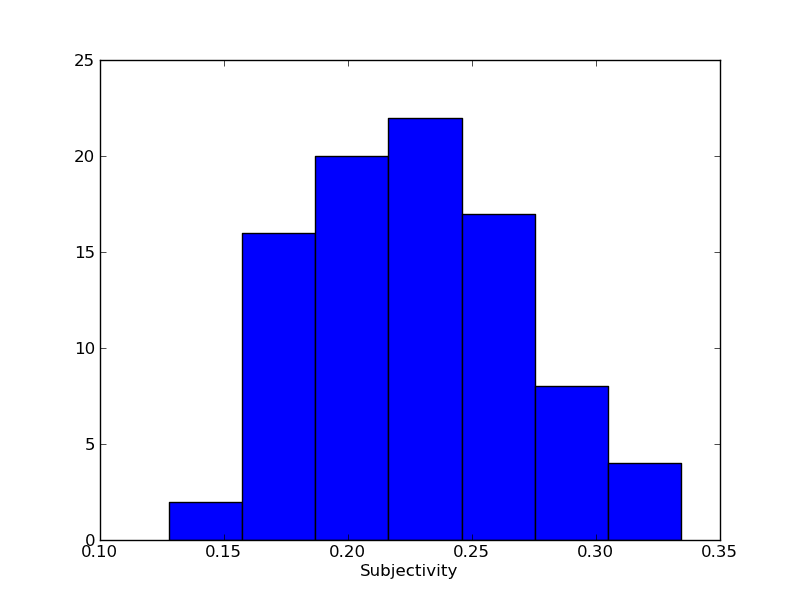This is the third (and likely last for a while) in a series of legal network posts. The first explored legal academic co-authoring relationships. The second mapped the law prof twitter network. Below you’ll find a network representing the advocacy relationships between lawyers who have argued cases at the Supreme Court. For some years now,… Continue reading The Supreme Court Advocacy Network
Author: Ryan
The Law Prof Twitter Network 2.0
This post has been updated from the previous one located here. I left the previous post up so that anyone interested in changes over time can see the previous results. There are about 50 more profs in the network now. Interestingly, in just the past few days the structure of the law prof twitter network has… Continue reading The Law Prof Twitter Network 2.0
The Law Prof Twitter Network
Following recent discussions about the importance of blogging/tweeting to contemporary academia (see: LSE via TaxProf), and Bridget Crawford’s Law Prof Twitter Census (version 3.0) over at TheFacultyLounge, I thought I’d do some number crunching and network building. I wrote a short script to read all of the law prof twitter handles included in the census and… Continue reading The Law Prof Twitter Network
Top coauthors in legal academia.
The role that collaboration plays in creativity and the production of knowledge is an major focus of my recent research. As such, I’m generally interested in patterns of collaboration. Having mostly wrapped up the fall submission season and participated in selecting the last articles that I will help select for the Northwestern University Law Review, I found myself wondering about patterns… Continue reading Top coauthors in legal academia.
Appellate brief length, sentiment, and subjectivity as predictors of case outcome
I recently did a quick language analysis of appellate case briefs to determine whether there were linguistic traits of the briefs that could be used to predict the case outcome. I collected about 100 briefs, from cases where Westlaw had both appellee and appellant briefs. Briefs were then coded by procedural posture,… Continue reading Appellate brief length, sentiment, and subjectivity as predictors of case outcome
The relationship between research output and teaching quality
This post was inspired by the discussion about the value of research in legal academia at Workplace Prof Blog. In the comment section of the linked post you’ll see that on the one side of the issue we have individuals like Mitchell Rubenstein arguing that “teaching is only of secondary importance” to today’s legal professoriate.… Continue reading The relationship between research output and teaching quality
Communities within the US cabinet
This is a preview of some work I’ve been doing recently. Using some multiplex relational information, I’ve assembled a network of the US federal government. After a bit of voodoo and some community detection algorithms, we see three communities within the federal cabinet. In the image below, node size is proportional to weighted degree, so… Continue reading Communities within the US cabinet
Installing Statnet while using Linux
I try to use Linux for much of my real work. I find it useful to have a clean install with nothing but a good Python environment and a well-equipped version of R. However, I’ve had trouble getting the full suite of Statnet packages to install. Despite various attempts to install the packages, I’ve always… Continue reading Installing Statnet while using Linux






